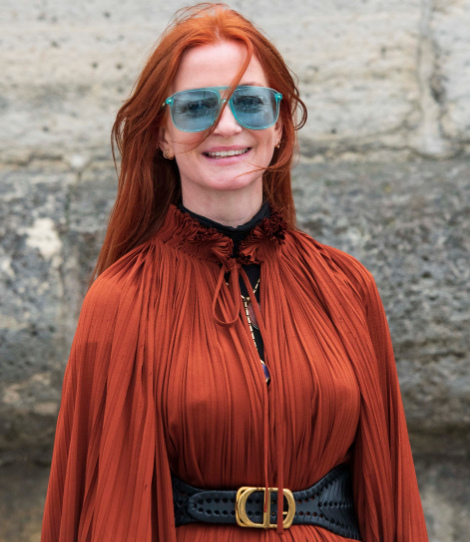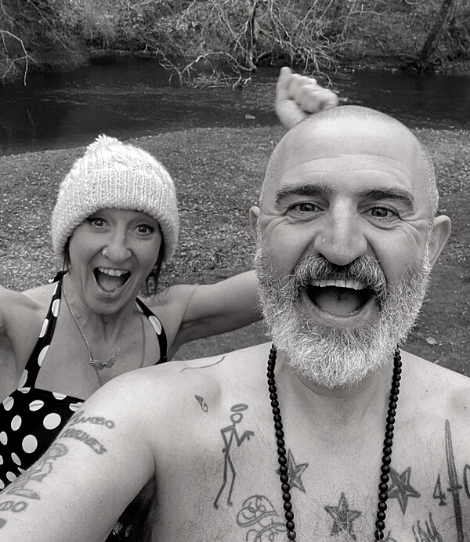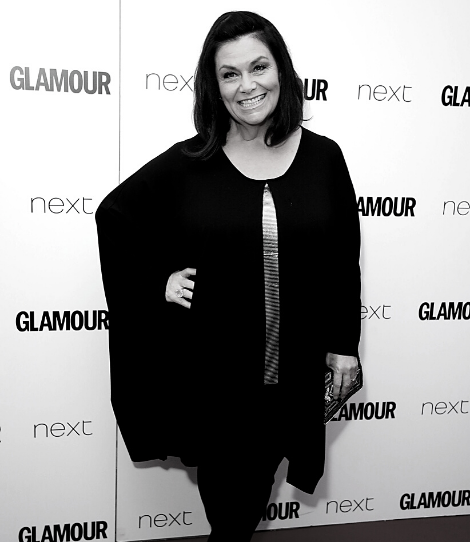“We need a posse,” my friend Angela said, as we sat drinking Cuba Libras at her kitchen table. “I have friends, but I feel like I need a gang.” Her comment jibed with something I’d been feeling myself: I had lots of individual friends but for the most part they were separate. Friendship is important in midlife…and having not just friends but a posse, a gaggle, a gang, a tribe feels especially vital as cope with multiple midlife challenges and our own changing sense of identity.
So Angela and I came up with a plan: “We need to introduce all our cool friends to each other!” I said, squeezing a lime into my glass. We put together a short list of women we thought would like the idea and sent out an email, wondering if we’d receive a deafening silence. Instead, the response was ecstatic.
“I love this idea!” said one.
“Can I invite someone else to take part?” said another.
Suddenly we had a substantial list of women in midlife – interesting women doing interesting things – who wanted to get together not to network or promote their businesses but…to make friends.
Science says: Friendships in midlife are special
As we get older, the role friendships play becomes even more important. Our friends are not just good for our social lives. They’re good for our health.
“Studies consistently show that friend relationships are as important as family ties in predicting psychological well-being in adulthood and old age,” a study from the Journal of Social and Personal Relationships reports.
Even beyond the emotional support, friends help keep us mentally and physically healthy in a whole host of ways. Socialising with friends helps us maintain cognitive function. Friends encourage us to care for ourselves physically. Friends love us, and they want us to love us too. Friends even provide caring responsibilities during times of injury, illness or disability as we age – a vital benefit for society.
And we can rely on them longterm. As we get older, our friendships remain more stable. We may bicker over mah jongg, but we still remain friends.
When things are going wrong, friends make it right
My friend Debra said to me not long ago,“I don’t think you would have gotten through these past 2 years without us.” She was referring to the small group of friends, including her, that I made when I went back to university to get my Masters degree. I was a little surprised when she said it, but immediately recognised she was right.
We had supported each other throughout our course but also blown off steam in the student pub (surrounded by twentysomethings), laughed together and done plenty of crying – about parenting, grown-up relationships problems, the fear of the next phase of life, money problems, even death. Because midlife gives rise to so many seismic changes – menopause, empty nest, divorce, death of a parent – friends are not just important. They’re a lifeline to sanity.
Ronita Dutta, a writer and mother of one, has definitely felt recent friendship changes in her life. “Female friendships are vital as we transition through perimenopause to menopause,” she says. “Whether it’s sharing symptoms, remedies, advice, a shoulder to cry on or someone to laugh and share a bottle of wine with.
“It was critical for me keeping my sanity,” she says. “I can’t imagine having to navigate this time of life without the help and support of some of the incredible women in my life – including a handful who have stuck with me over many years.”
Friendships matter whether you are married or single
Even in marriages, friendships serve a distinct function, says Kathryn Seaton Reid, an interior designer. “My friends let me witter on,” she says. “We have meaningful conversations even when they are not necessarily deep or high brow. It’s a very different type of conversation than I have with my husband.”
For Benita Finanzio, a married secondary school teacher who works for Arsenal Football Club, her friends supply easy joy from shared experiences. “I crave the support and companionship of good friends, especially the quirky humour and silly stories.”
Romances come and go but friendships…
And of course, for many people friendships can outlast romantic relationships and marriages. This is especially good news for those without a long-term partner in midlife and beyond. And especially good for women, who tend to outlive men.
My boyfriends from my teenage years are long gone, but my best friend – whom I met in dance class when we listened to Depeche Mode, had asymmetrical haircuts and liked guys with names like Cam and Wyatt – called me yesterday “just to check in”. “Sisters before misters” indeed.
How many friends should we have?
In the era of social media followings in the millions and multiple WhatsApp groups, the idea of ‘friends’ can has become a bit devalued. The question for some might be: How many friends should I have? Research, naturally, have a number: Five. They hit upon that figure after studying a group of people’s phone records and frequency of contact. However even a larger casual network of ‘friends’ has benefits.
A 2014 study looked at ‘weak’ ties: Connections to people you know by sight and say hello to, such as other dog owners on the street, the newsagent, women at your Pilates classes, familiar clerks at the supermarket…and of course your NOON friends.
The study found that the more weak ties a person has, the happier they are.
It makes sense when you think about it: This mesh of connections embeds us even more in our communities. It’s stimulating, and it puts us in contact with people in a range of ages and personalities. With these connections, we know we are part of the wider world.
Enjoying weak ties
I’m a fan of both the core inner circle and the wider outer one. That was the idea behind the plan I hatched with my friend Angela.
We booked an area in a central London wine bar, put the word out and waited. We wondered if everyone might bail at the last minute. Instead, more than 20 showed up. We mingled for hours. I finally talked with an elegant Lithuanian that Kathryn had been telling me for years that I “had to meet”. My friend who trains horses in America and the Cotswolds marvelled at “how many cool women are here”. Another friend told me, “It’s just great to get out and be ‘seen’.” In our subsequent meet-ups, we’ve eaten tacos in Brixton and canapes in Victoria.
The best part is that, unlike when I was younger, there wasn’t that feeling that I needed to ‘make the most of it’. I didn’t have to make a connection for work or romance.
Since then I’ve become part of the NOON community, and am now meeting women from all over the country.
My wider circle in midlife extends beyond what I could only have imagined in my younger years. What we have in common is that desire to make a connection. We need it. We were hungry for it. And we’re all make each other happier now that we’ve found each other.
joy
View All
Things can only get better…
Linda Kelsey found midlife incredibly difficult. Now, almost 70, she sends us a postcard from our futures

Would you rather be thin, or happy?
After dieting and purging for years, Daisy Buchanan asks what really matters

Picture: Getty Images
How to dress for yourself
Stacey Duguid shares 3 scenarios where dressing for herself helped get her through

Cold water swimming cured my panic attacks
Breathing, immersion in freezing lakes and comraderie helped Sharing Miranda Bailey heal herself


